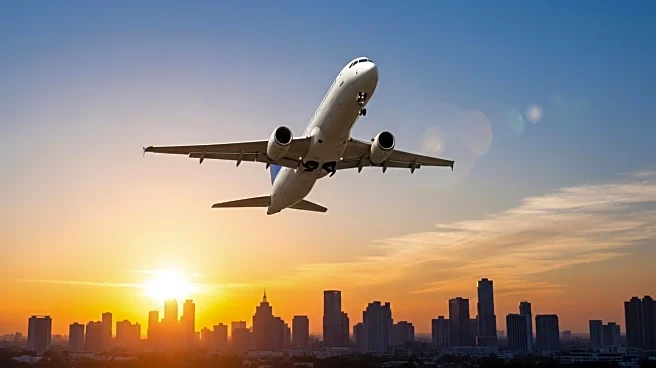What's Happening?
Chicago O'Hare and Atlanta Hartsfield-Jackson airports have climbed the ranks in the global connectivity index, according to the Megahubs 2025 report by travel data company OAG. Chicago O'Hare has added 15 new destinations, moving up two places to become the seventh most connected airport worldwide. Atlanta Hartsfield-Jackson, already the largest airport by seat capacity, reentered the global top 10, climbing from No. 11 to No. 8. This improvement in rankings highlights the growing importance of U.S. airports in the international travel network, amidst challenges such as cyberattacks and drone sightings affecting European airports.
Why It's Important?
The rise in rankings for Chicago and Atlanta airports signifies a strengthening of the U.S.'s position in global air travel connectivity. This development is crucial for the U.S. economy, as it enhances the country's ability to facilitate international business and tourism. Improved connectivity can lead to increased passenger traffic, boosting local economies and creating jobs in the aviation and hospitality sectors. Additionally, it underscores the resilience and adaptability of U.S. airports in maintaining operations despite global disruptions.
What's Next?
As U.S. airports continue to improve their connectivity, they may attract more international airlines and routes, further enhancing their global standing. This could lead to increased competition among airports to offer better services and facilities to passengers. Stakeholders, including airport authorities and local governments, may invest in infrastructure upgrades and technological advancements to support this growth. The focus will likely be on maintaining security and efficiency to prevent disruptions similar to those experienced in Europe.
Beyond the Headlines
The improvement in connectivity rankings for U.S. airports may also influence cultural and social dynamics, as increased international travel can lead to greater cultural exchange and diversity. This could impact local communities, fostering multiculturalism and broadening perspectives. Additionally, the emphasis on security and technological advancements may raise ethical considerations regarding privacy and surveillance in airports.









